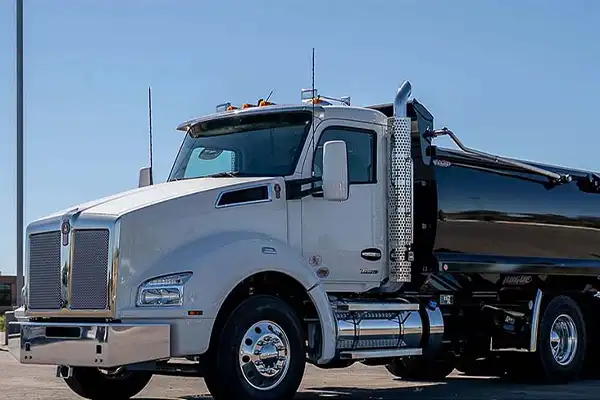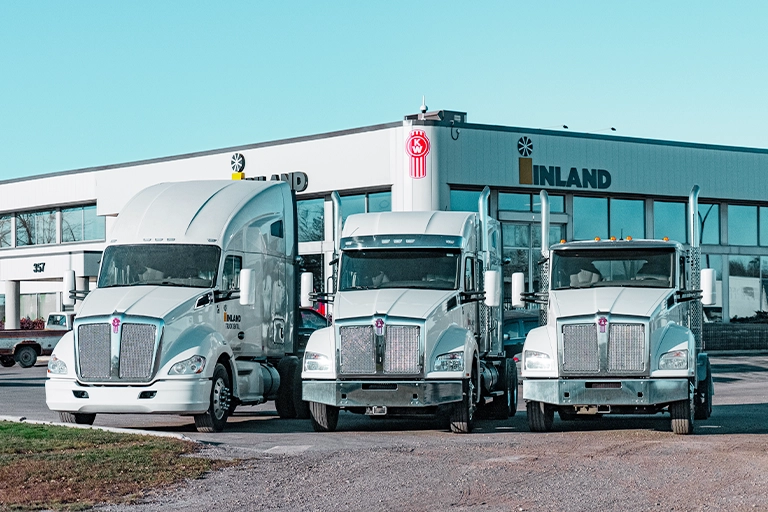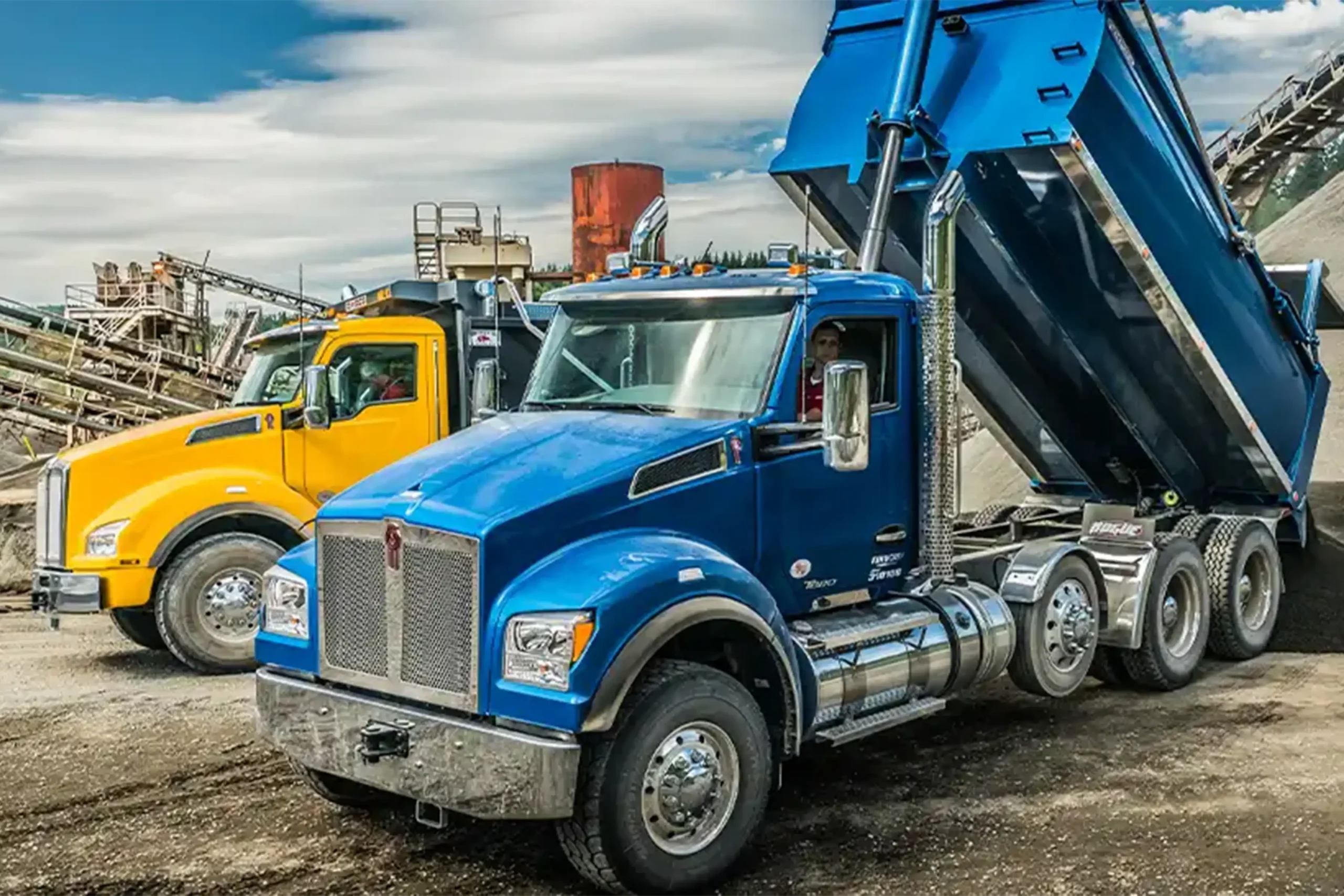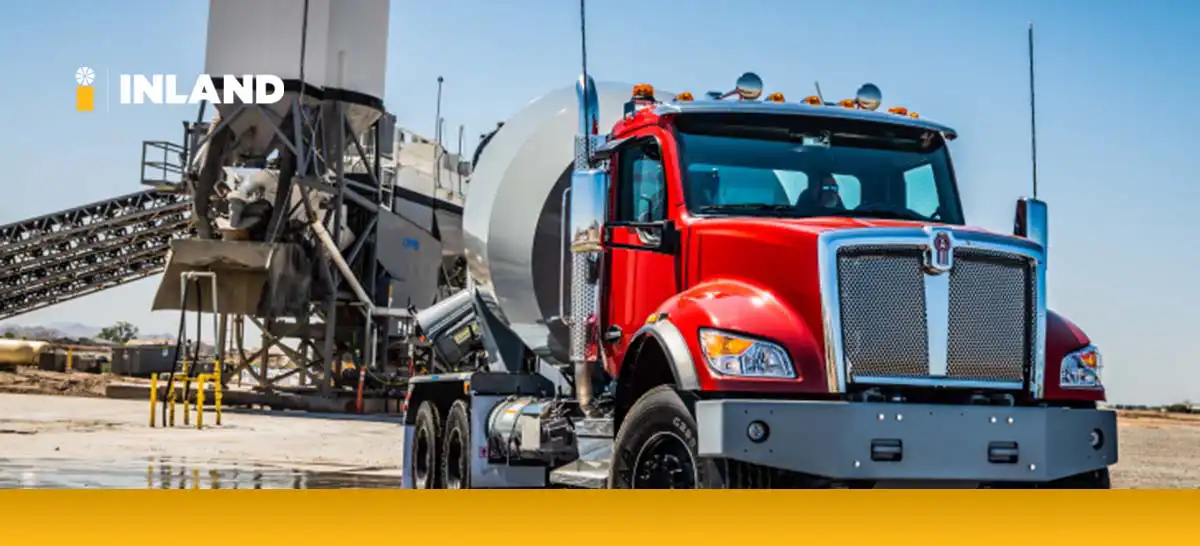
Selecting the right construction equipment is an essential step for the success of any project. Delays from inadequate equipment, like an underpowered backhoe or the wrong truck, can be frustrating.
Learn how to choose the right construction equipment and trucks for any job so that you can stay productive, safe, and efficient.
Types of Construction Vehicles and Equipment
Every vehicle used in construction is built for a purpose, and using the right one can help you avoid wasted time, unnecessary repairs, and safety risks.
Excavators
Excavators are versatile machines. Their boom arm, rotating cab, and bucket enable them to dig, lift, and move materials with precision. This versatility makes these earth-moving machines ideal for digging foundations, trenching, site clearing, and demolition.
Full-size excavators can be used in mining, forestry, and heavy infrastructure projects, while mini excavators may be better suited for landscaping or residential jobs.
Key features to consider when purchasing or renting excavators:
- Digging depth and reach: Make sure the boom and arm length can meet the demands of your trenching or foundation work.
- Hydraulic performance: Strong hydraulic flow ensures attachments run smoothly and powerfully.
- Attachment compatibility: Consider machines that easily switch between buckets, thumbs, or grapples to maximize versatility.
Bulldozers
Built for pushing, grading, and leveling, bulldozers are designed to move large volumes of material across rough terrain. This makes them ideal for land clearing, road building, or pushing debris and soil across sites.
Key features to consider when purchasing or renting bulldozers:
- Blade type: The right blade can increase efficiency.
- Horsepower and torque: Ensure the dozer has enough power to push heavy loads and work on slopes.
- Track width and ground pressure: Wide tracks can distribute weight better and may help reduce the risk of sinking or slippage.
Loaders
Loaders are ideal for scooping, lifting, and transporting loose materials. They’re quick, maneuverable, and a staple for fast-paced sites. These material handling machines are often used to load dump trucks, stockpile gravel, backfill trenches, or remove snow and debris.
Key features to consider when purchasing or renting loaders:
- Bucket capacity: A larger bucket can move more material quickly, but may not be suitable for tight spaces or small loads.
- Lift height and reach: Higher lift capabilities allow easy loading into high-sided trucks or hoppers.
- Travel speed and cycle times: Fast cycle times can boost efficiency on jobs that require repeated loading and unloading.
Backhoes
Backhoes allow operators to dig and load. They are ideal for utility work, digging small trenches, installing septic systems, or loading small trucks.
Key features to consider when purchasing or renting backhoes:
- Boom reach and dig depth: Ensure the backhoe arm can handle your trenching or excavation requirements without repositioning.
- Attachment versatility: Switching between forks, breakers, or augers adds flexibility across multiple job types.
- Maneuverability: Backhoes should be compact enough for tight spaces, yet stable during digging or lifting.
Skid Steers
These compact machines are highly adaptable and can support dozens of attachments for various jobs. Skid steers are commonly used for grading, site cleanup, snow removal, and interior demo work.
Key features to consider when purchasing or renting skid steers:
- Rated operating capacity (ROC): This tells you how much weight the machine can safely lift.
- Attachment options: Skid steers can support many accessories, from trenchers to sweepers, so ensure they are compatible with your needs.
- Wheeled vs. tracked models: Wheeled units can work well on hard ground, while tracked models may be better suited to muddy or uneven sites.
Best Trucks for the Construction Industry
Inland Truck & Equipment is proud to offer the World’s Best® lineup of Kenworth trucks for construction, engineered for durability, power, and comfort.
Kenworth W990
The Kenworth W990 combines power and driver experience, offering a luxurious and spacious cab designed for long-haul comfort. Whether hauling aggregate to remote sites or tackling demanding long-distance routes, this truck delivers a great blend of fuel efficiency, reliability, and iconic style.
Kenworth T880
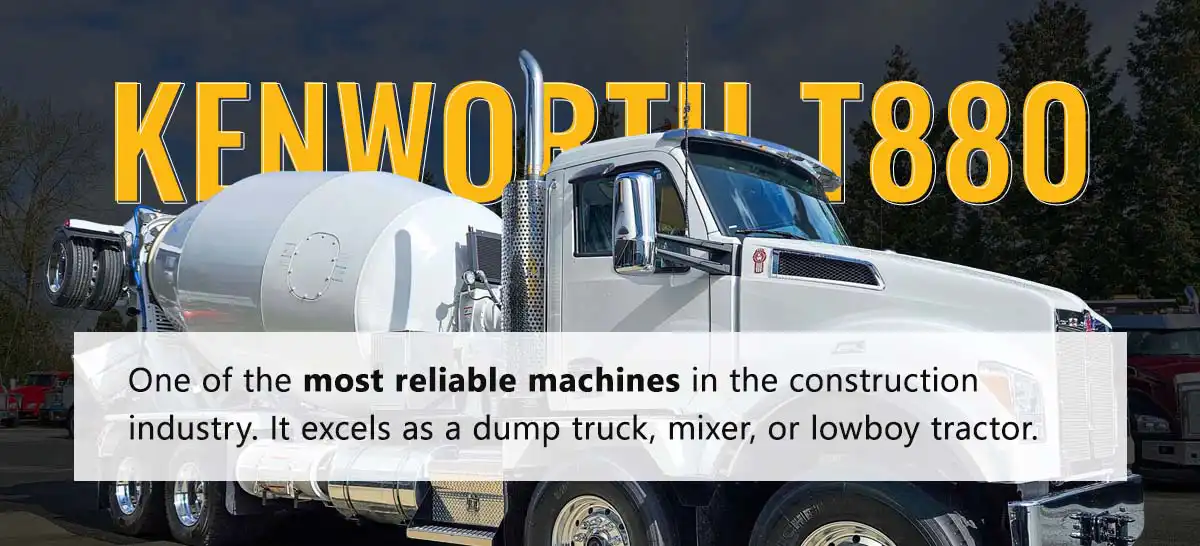
The Kenworth T880 is one of the most reliable machines in the construction industry. It excels as a dump truck, mixer, or lowboy tractor. This adaptability makes it ideal for businesses that require a truck to perform multiple roles. For example, if you need it to haul equipment one day and deliver loads the next, the Kenworth T880 is adaptable enough for both jobs.
Kenworth T180 and T280
The Kenworth T180 and T280 blend efficiency, versatility, and driver-centric design. These medium-duty trucks are ideal for lighter construction tasks, urban delivery, and utility fleets. For instance, if your business does electrical or HVAC installs in city zones, they can provide the maneuverability you need without sacrificing performance.
Kenworth T380 and T480
The Kenworth T380 and T480 are designed for vocational flexibility and a wide range of body upfits, such as dumps, service units, or water tanks. These trucks are a great investment for work in remote or rural areas that require long travel distances and specialized builds, as they offer driver-centric systems, a comfortable cab environment, and sturdy chassis.
Kenworth T800
This heavy-duty truck is known for its versatility and reliability, making it an excellent choice for logging, construction, and other demanding industries. Its powerful engine and durable design allow it to handle demanding sites. Whether hauling heavy loads or navigating challenging terrain, the Kenworth T800 delivers consistent performance and long-lasting value.
Tips for Buying Construction Equipment
There is a lot of heavy construction equipment on the market. You need to evaluate a few factors to make the most informed decision when expanding your fleet:
- Project scope and requirements: Assess your typical project needs, the types of tasks your team completes, and the equipment sizes and capacities necessary to support efficiency.
- Site conditions: Some equipment provides better traction on muddy or uneven ground. Smaller machines can fit better into tight sites and reduce surface damage.
- Budget constraints: Buying used equipment may reduce upfront costs, while renting could be more economical for short-term jobs or specialized machines.
- Operator skill level: Newer models have simpler controls and onboard support systems, making them easier to train personnel. Complex hydraulic systems or multiple attachments may require more experienced operators.
- Safety and compliance: Features like backup cameras, enhanced visibility, and rollover protection matter. Compliance with workplace safety regulations is important.
- Maintenance and support: Choose brands with strong dealer support and easy access to replacement parts. For example, Inland provides full-service support and can help with long-term maintenance plans that reduce downtime and extend machine life.
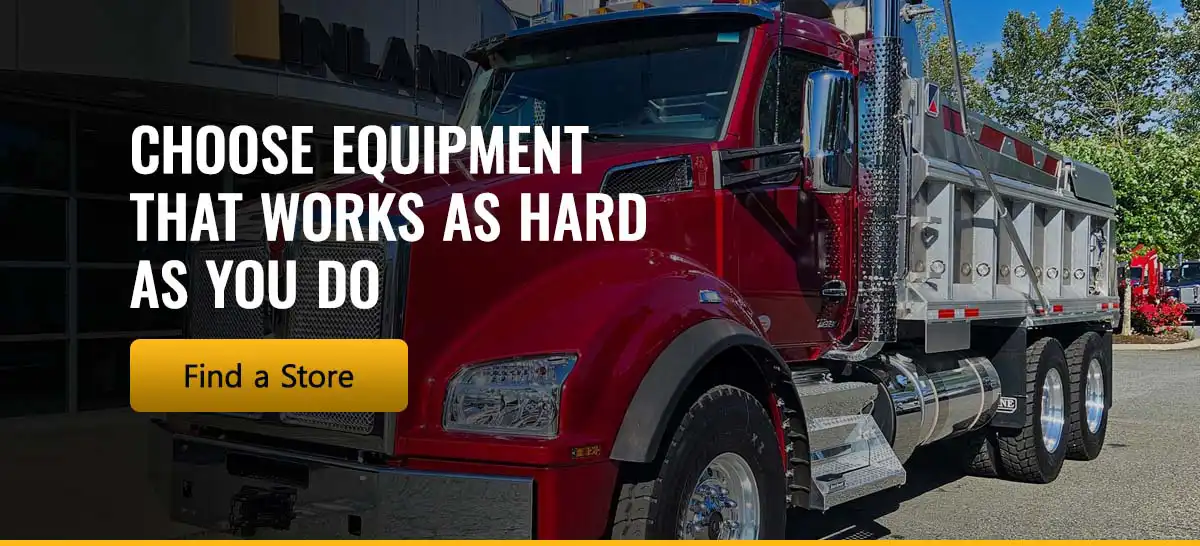
Choose Equipment That Works as Hard as You Do
We know choosing the right construction equipment is a big decision. Working with a partner who understands your day-to-day challenges and helps you find the right machines for the job is important. Inland Truck & Equipment has supported construction professionals for over 70 years. We offer dependable heavy equipment built to handle the job, and a team that backs you every step of the way.
Visit your nearest Inland location to find the best solutions for your business.

